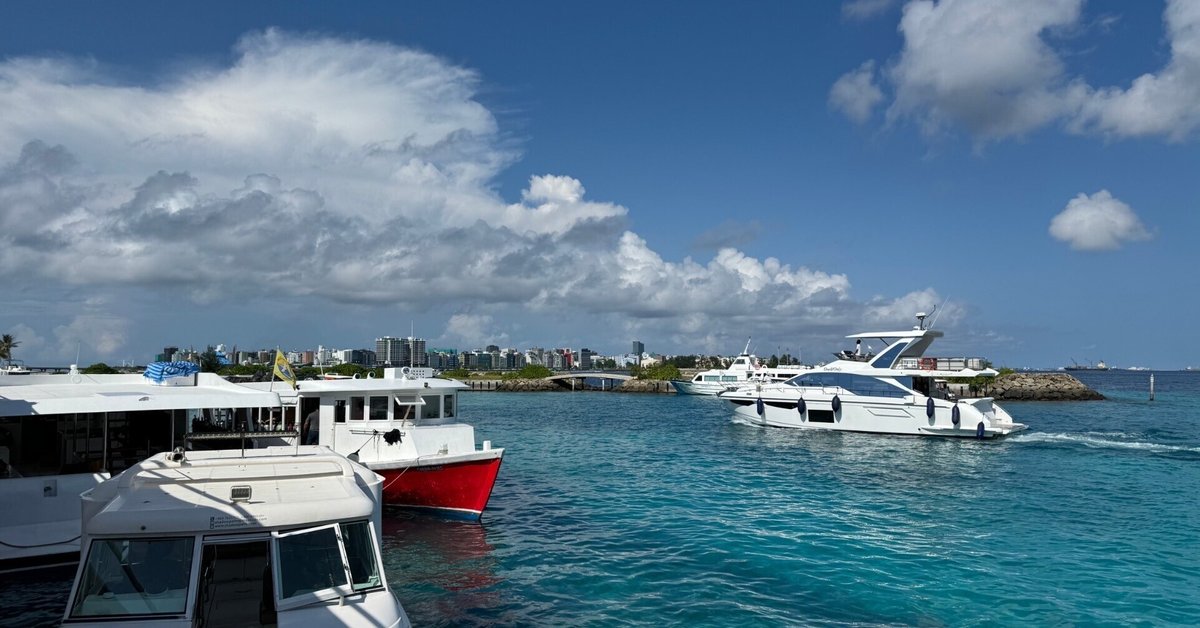
A must-read for students who want to experience international cooperation =Takumi Shirai tells how he trained badminton athletes in the Maldives=/◎国際協力を体験したい人は必読!=インド洋モルディブでバドミントン選手を育成した白井巧さん=
Takumi Shirai, a part-time physical education lecturer at Chuo University, trained badminton athletes in the Maldives, an Indian Ocean island country, for two years and three months from 1986 under a program sponsored by the Japan International Cooperation Agency (JICA) of the Ministry of Foreign Affairs. Hakumon Herald interviewed Shirai who recently returned to Japan about what he experienced during his work as an overseas cooperation volunteer and what he felt important for students who study abroad and get engaged in international cooperation.
Shirai, 59, graduated from the Social Physical Education Department of Tokai University’s Faculty of Physical Education. He recalled that while he was a student, he devoted himself to playing badminton at his school’s club. He joined JICA through the introduction of his friend. “I did not want to take over my family business upon graduation,” he said, adding that he was fascinated by the JICA program which would allow him to enjoy playing badminton as his routine activity. He admitted he applied for the JICA assignment with an easy feeling.
中央大学体育兼任講師・白井巧氏(59歳)は外務省所管の青年海外協力隊(JICA)を通じて、1986年から2年3か月間、インド洋の島国モルディブでバドミントンコーチとして選手育成に努めた。白門ヘラルドは2024年6月に、帰国した白井氏に会い、現地での経験談や、留学や国際協力の在り方などについて語ってもらった。
白井氏は東海大学体育学部社会体育学科を卒業。学生時代はとにかく部活動のバドミントンに励んでいたという。JICA入隊は友人の紹介によるもので、「卒業後、実家の家業を継ぎたくなかった」という気持ちのあった白井氏は、JICAの活動でバドミントンもできるという魅力に惹かれた。つまり、どちらかといえば安易な気持ちで応募したというわけだ。
Maldivian life allows you to enjoy traditional fish dishes /〇モルディブでの暮らしー伝統的な魚料理を堪能-
Living abroad is quite different from living in Japan because of many uneasy factors such as the difference of living environments, meals and languages. However, Shirai didn’t feel those anxieties from the beginning. He said his sheer lack of information about the Maldives rather helped him not to feel uneasy. The Maldives was the first foreign country he visited. He confessed smilingly he was so excited about his first flight that he was cautioned by a cabin attendant to calm down.
The Maldives consists of over 1,000 islands dotted in the beautiful ocean. As the country experienced many cholera pandemics in its long history, it has accumulated a lot of wisdom for daily life in the aspect of hygiene. For this reason, toilets are reasonably clean and cockroaches are rarely seen. But as to shower, groundwater is used and it is not fully hygienic, according to Shirai. Today, however, tap water is in constant supply mainly in the capital city of Male and clean water is available in many other places.
Shirai found Maldivian meals quite delicious. Fishes, mainly tuna and bonito, are abundantly available and people essentially rely on fish dishes. One of traditional Maldivian dishes is “Garudiya", a broth made of salt-flavored bonito fillet. Among other dishes, he said he frequently had light taste fish curry which looks like a miso soup. Many restaurants also serve chicken, he added.
海外での生活は日本での生活と大きく異なる。環境や食事事情、言葉の違いなど、生活するうえで不安な要素は多々ある。しかし、白井氏にはそうした不安はなかったようだ。なぜなら、モルディブについての情報の少なさが却って不安をかき消していたからだと言う。初めての海外渡航がモルディブであった白井氏は、「人生初の飛行機に興奮を抑えられず、CAに注意を受けましたよ」と笑う。
モルディブは1000を超える島から成る美しい海に囲まれた島国である。長い歴史の中で、コレラの流行を経験したことから、衛生面での多くの暮らしの知恵を持つ。そのため、トイレも比較的綺麗でゴキブリもなかなか見ない。しかし、シャワーに関しては、地下水からくみ上げた水を使っており、あまり衛生的ではなかったと言う。ただ、現在は首都を中心に水道が整備され、きれいな水が使われている場所が多い。
食事はおいしかった。カツオ・マグロを中心とした魚がよく獲れたため、基本は魚料理だった。伝統料理の「ガルディア」はカツオの三枚おろしを塩味でゆでたものだ。他にも魚を具材にした味噌汁のような薄味のカレーをよく食べた。食堂に行くと鶏肉も食べることができたそうだ。
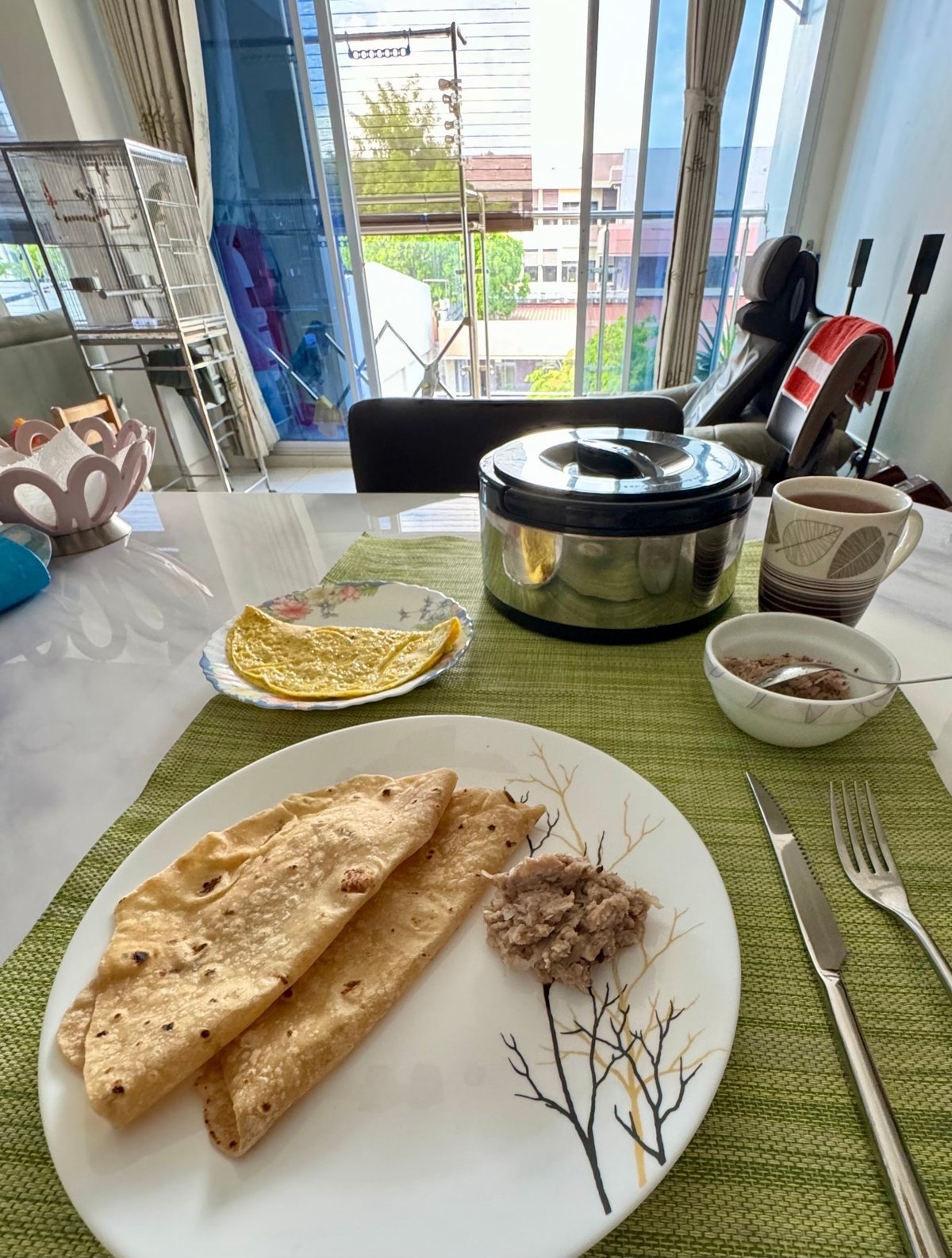
The official language in the Maldives is Dhivehi. Shirai learned the language for a month at JICA and sat for a short training course after he took up his duty. But that was far from helpful. He had to learn the language and lifestyle through communications with his students and members of his homestay family.
公用語はディベヒ語。JICAの研修で1か月間、現地で語学研修期間があったが、その程度では完全習得は難しく、指導対象の子供たちとのコミュニケーションや、ホームステイ先での生活を通じて、言語や生活習慣を学んでいったと白井氏は話す。
Hard training to nurture junior athletes -Learning a lot for better international cooperation-/〇ジュニア選手の育成へ厳しく指導―現地で得た国際協力への学びー
Shirai confided, "I gave my students a really hard training." The main purpose of his instruction was to foster competitive junior badminton athletes. He strictly abided by the common international rules without making any significant changes. The local climate is so hot and humid that he had to give most of his lessons in the evening or at night. They were done in accordance with the training menu he himself had prepared. He said his training was of the same level as that at the Federation of Japanese University Badminton Clubs. As he was young then, he took no compromising attitude toward his students. He let them practice even during Ramadan, the holy month of fasting in Islam. He practically spent all his time on badminton lessons. Looking back on those days, Shirai said, "I paid little attention to the local culture. Now I really regret that was one of my bad points."
When Shirai began managing his team, he strongly felt there was a perception gap between him and his students about badminton. One day, none of his team's core players turned out on time for the training session set in preparation for an international competition. They arrived belatedly and told him they went to watch a “Maldivian League” soccer match. Finding that is something impossible in the Japanese way of thinking, he decided to make his training lessons even harder. However, one of his Maldivian friends advised him that if he showed too much of his anger to them, they might respond with a rebellious spirit and he might become unable to take control of them.
Shirai said he knew the limits of his instruction at the time. He realized his opinion is simply based on Japanese common sense and that perception gaps come from the differences in history and culture in each country. He emphasized he learned a lesson that there is nothing good or bad about those differences.
白井氏のバドミントンの指導内容は「非常に厳しいものでした」と自ら語る。指導の主な目的がジュニア選手の育成。世界共通ルールのもとで、特段の変更点はなかった。日中は非常に蒸し暑い気候であるため、主に夕方や夜間に活動し、練習メニューは全て白井氏が決めていた。その指導レベルは、日本の大学の体育連合レベルほどのものであったそうだ。年齢的にも若かった白井氏は、生徒らに妥協的な態度は示さず、イスラム教のしきたりであるラマダン(断食)期間中も練習を行っていた。このようにバドミントンに没頭する日々であったが、当時の自身を振り返り、「現地文化の尊重が希薄でした。今となっては反省点でした。」と語る。
チームを運営するうえで白井氏が強く感じたのは、チーム内でバドミントンに対する意識のギャップ。国際大会直前の練習日に時刻になっても代表選手が来なかったことがあった。彼らはMリーグ(モルディブのサッカーの大会)を見に行っていたというのである。日本人の考えからするとありえないことだと思った白井氏は、彼らに対して厳しく指導しようとした。しかし、現地の友人から、選手たちに対して過度に怒りの感情をみせてしまうと彼らに反発心が生まれ、チームの統率が取れなくなってしまうと諭された。
白井氏はそこで指導の限界を知ったと言う。あくまで、自分の考えは日本人の考えであり、こうした意識の差はその国の歴史や文化の違いから生じるものである。従って、その違いに善し悪しはないという学びを得たと強調する。
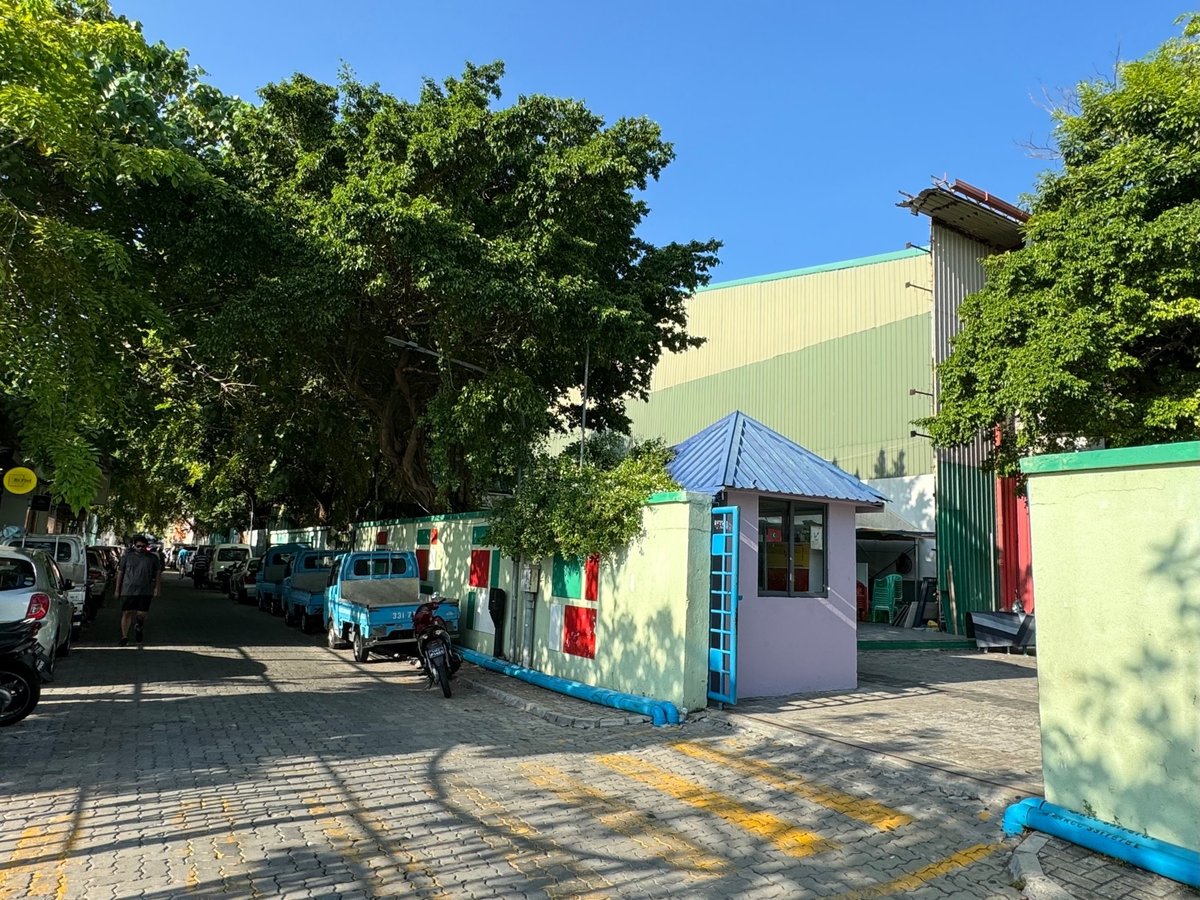
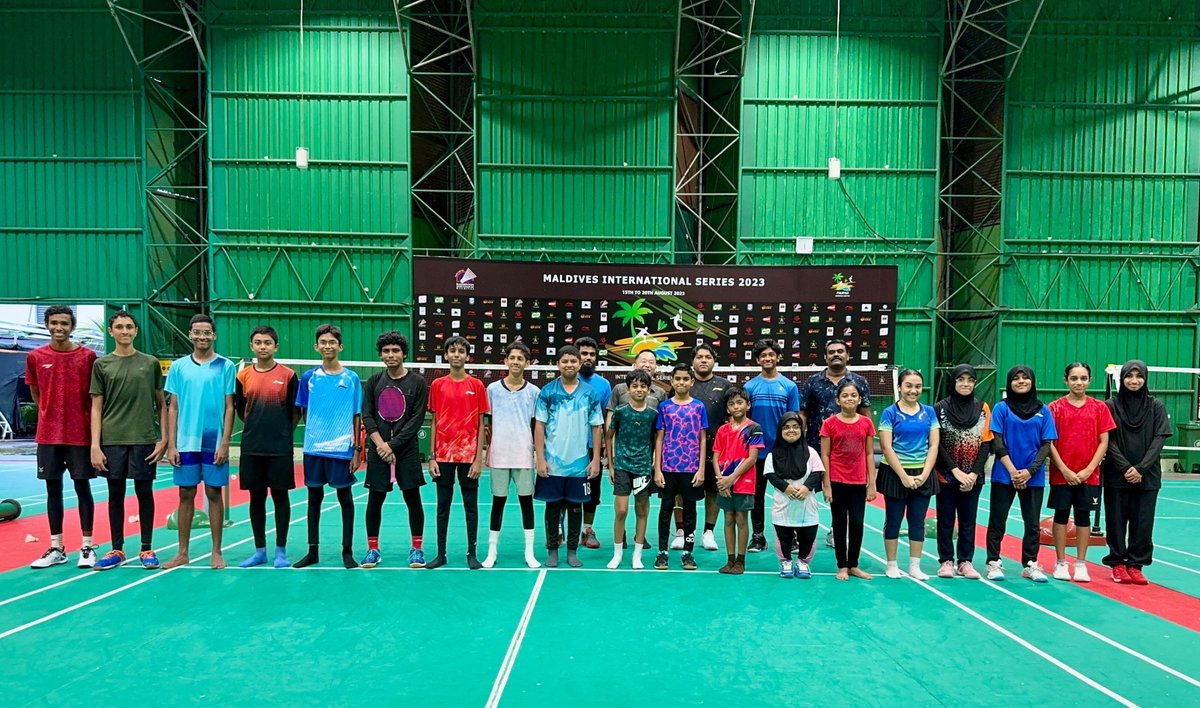
His message for students/〇学生へのメッセージ
Shirai said his day-to-day activities in the Maldives were so tough that he often felt painful. “It is important for us JICA volunteers to continue learning about the host country’s language, religion, lifestyle, etc. If I may describe that process of learning, it was as if I were challenging a lot of things as I did through my long journey to the coming-of-age ceremony (upon becoming 20 years old in Japan). I had very exciting days," he said in retrospect. In concluding his interview, he said: "When we live in Japan, we don’t have much information about developing countries. We are apt to see the world from the perspective of an advanced country. But it is not too much to say that the world overwhelmingly consists of developing countries. I want you to visit developing countries while you are a student and look at the reality there.” Hakumon Herald hopes Shirai will continue to be active on an international stage.
モルディブでの活動は日々大変なことが多く、苦しい思いをすることが多かった白井氏。「私たち青年海外協力隊員、その国の言語、宗教、生活習慣を学び続けることが大切です。その学びの過程を表現するならば、まるで長期間におよぶ成人儀礼の日々に挑戦しているかのようで、とてもエキサイティングな日々でした。」と白井氏は振り返る。最後に白井氏は「日本で暮らしていると、開発途上国の情報がどうしても少ない。私たちは先進国からの視点で世界を見る傾向にありますが、世界は圧倒的に途上国で成り立っていると言っても過言ではありません。ぜひ学生のうちに途上国の現場に行き、実際に現実を見て欲しい」と、思いを言葉にした。今後の白井氏の国際的な活躍に期待したい。
By Kisaki Sato/佐藤綺咲
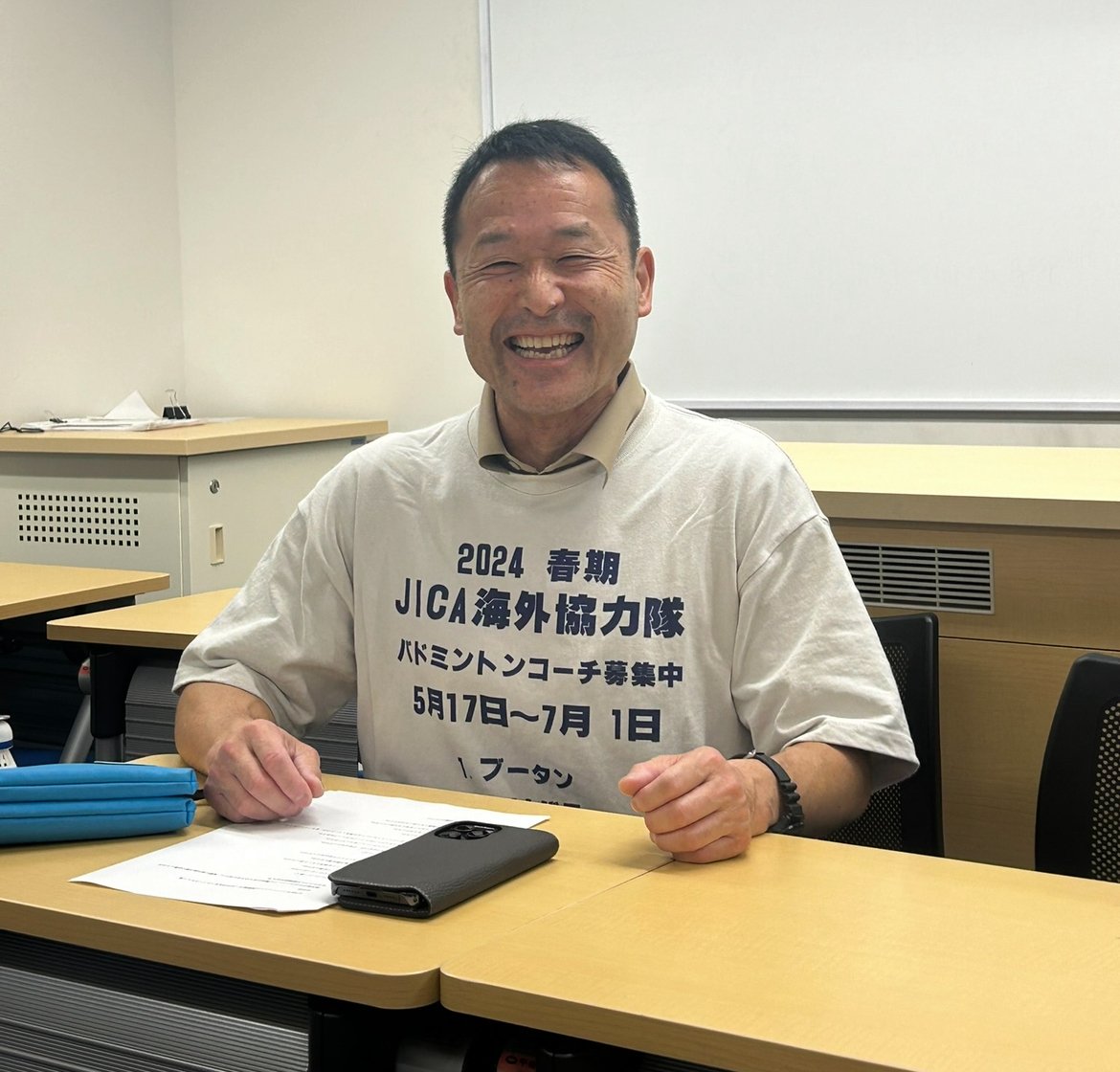
【編集後記/Editor's note】
As this writer had an image that most developing countries are poor, it was a surprise to know that the Maldives has a good environment for hygiene and meal. Japan is an island country and we cannot go abroad without a flight. But as Shirai says, we students should visit developing countries and take a firsthand look at the reality there. We found working as a JICA cooperation volunteer quite attractive. Shirai said he had a hard time doing his work even in his specialty field. However, we have learned we should not avoid that for the sake of international cooperation.
発展途上国は貧しい国というイメージがあったため、衛生面や食事の環境が整っているというのは驚きだった。日本は島国であり、飛行機なしに他の国に渡航できない。よって、白井氏の述べるように、一度途上国の現実を見に行ってみるべきだと思った。 自分の得意分野で国際協力をできる青年海外協力隊は、とても魅力に感じた。白井氏は、得意分野であっても大変な思いをすることがあったと述べているが、国際理解のために避けては通れない道だと学んだ。
【Column①】What kind of country is the Maldives?/モルディブってどんな国?
・Capital/首都:Male/マレ
・Official language/公用語:Dhivehi/ディベヒ語
・Population/人口:515,000/51.5万人
・Religion/宗派: Islam/イスラム教
・Location/場所: South Asia/南アジア
(Data available at the Japanese Ministry of Foreign Affairs website/日本外務省HPより引用)
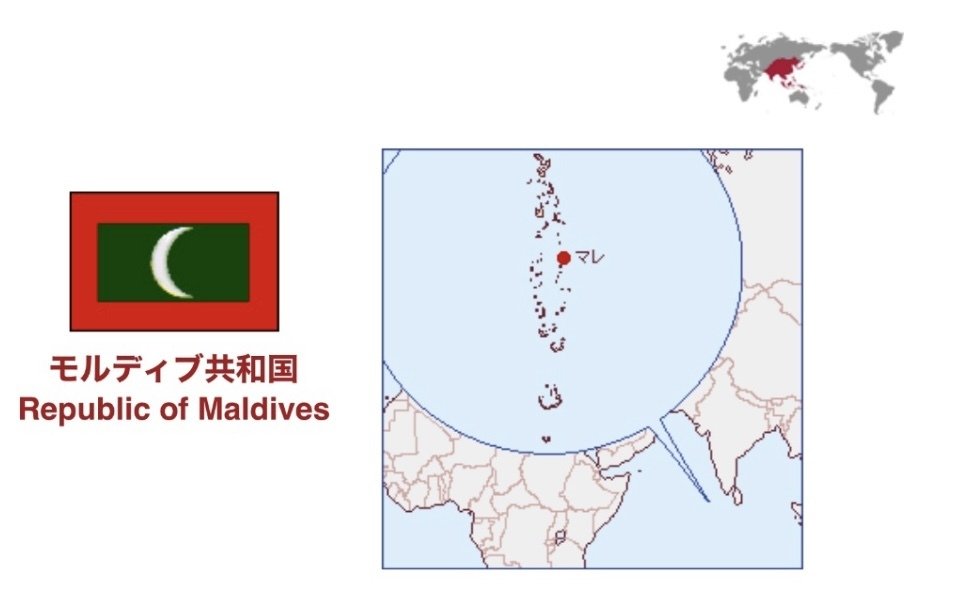
【Column②】What are JICA's overseas cooperation volunteers?/青年海外協力隊って何?
At the request of developing countries, JICA recruits persons with the necessary technologies, knowledge and experiences who want to "use them for the people of host countries". It trains them and sends them as overseas cooperation volunteers. The program is funded by the Japanese government's official development assistance (ODA) budget.
開発途上国からの要請に基づき、それに見合った技術・知識・経験を持ち、「開発途上国の人々のために生かしたい」と望む人を募集し、選考、訓練を経て派遣する、日本政府のODA(政府開発援助)予算により実施される事業。
(Referenced from the JICA Overseas Cooperation Volunteers website/JICA海外協力隊HPより参照)
